Lebanon is a brand new comer on the international high-tech scene: its first investment fund started in 2008, and entrepreneurial success stories are still a handful.
Yet the former Switzerland of the Middle East, neighbour to the Israeli Silicon Wadi, has many assets to emerge on a regional and international level. What are they, and why should foreign investors and entrepreneurs care?
In this interview, we meet Badih Saikali, co-founder of Referd, the business connector tool.
Full transcript of the interview:
Youmna Ovazza: Hello! I’m today in Beirut, Lebanon, with Badih Saikali, co-founder and CEO of Referd, the business connector tool, and we’re going to discuss digital innovation in Lebanon. Hi Badih!
Badih Saikali: Hello Youmna, thank you for your interest in our project!
YO: Thank you! So Badih, before starting our conversation, could you please present Referd to us, because this is a new start-up, so I’m interested in knowing what your activity is, when and how you started it, your ambition; maybe if you can give us also an idea of your professional background as well, because you have a wide experience abroad as well as an entrepreneur here in Lebanon, and I think your background will give us an interesting perspective to the discussion that will follow.
BS: Referd is the business tool that finds for you the best mutual contacts. Whenever you need to get introduced to someone, and you don’t know who among all your friends, will be the best one suited to make the introduction, privately of course, Referd will find for you, the best mutual contact, based on the confidential relationship evaluation that we will ask you to do.
It’s a very simple one question with 3 possible answers: either you know the person, you interact with him or her, or you trust him/her. Many other tools offer to show you who are your mutual contacts, with that target person you’re trying to meet, but none of them will tell you « Aha! This is the best person that you need to contact in order to get introduced to that person.
It has been my case, you were asking about my background, it has been my case for 10 years in the Gulf, all of the Gulf states, where I was working as a consultant, as a salesman, as a specifier of building materials, of marketer for building materials mainly before my career with Arthur Andersen for 6 years, I was also there in the Gulf and Lebanon, but then, in the Gulf, I was trying to sell as a salesman, I always found it very difficult to get into the door of those people, of some of those people who were also of different cultures, of different backgrounds, of different nationalities, and despite all the thousand of contacts I used to gather and still keep today, in my phone and in my database, I still found it very difficult to find just one mutual contact.
And that was even after Linkedin came in! Linkedin, by the way, is a very good tool for job seekers and job hunters. We, are the business tool for those who are not seeking to change jobs, for those who are willing to expand their businesses, simply. And we, by the way, as a very important feature, we keep all the data, personal data of our members, completely private, unlike any other networking tool to date.
YO: Badih, can you tell us a little bit about your professional background, and how did you create your start-up? I mean, why did you do it, why this moment, how did it happen?
BS: In fact, I owe Referd to the evolution of my professional experience. It started as a simple accountant here in a real estate company, I was then promoted to the assistant of the VP Finance to program, and it was the first time I did some programming for database to help me manage some of the assets then. Then I got headhunted by Arthur Andersen who moved me to the Gulf states, for 3 years, and then I went back here and did my MBA. So with Arthur Andersen it was really more on the consulting, business process engineering, big software implementation like ERPs, so it was a very good way to see how we can improve processes inside companies.
And then I left the consulting world to join a big company specialized in manufacturing building materials, for 8 years, and I went through all the stages of this company, it was a family-owned company, and it was really very very tough in a sense that I was put in front of a lot of situations where I had sales targets at the end of the month, or specifications targets to specify the materials we were producing, and it was really a challenge to get by, I mean it was tough situations, tough culture, tough environment, it was very hard, and I, despite the numerous contacts I had, as I told you earlier, it wasn’t enough for me, those contacts were not enough for me to help me get by and vouch for those people, trying to find someone to vouch for the integrity and the honesty of our company, our products and myself as well, in order to close more business deals.
So this is the inspiration from all this experience, 20-year experience in different fields, I got inspired to start this tool, because of my hardship, because of the pain and the suffering I experienced, especially in the last 8 years, because I believe it’s the case of everyone of us. Everyone needs to sell either his services, or the products he’s representing or he’s manufacturing.
YO: Now, when it comes to Lebanon and digital innovation in Lebanon, let me start with a difficult question: when it comes to IT infrastructure, and starting with the Internet connection, Lebanon is more doomed than blessed. So has anything changed, that I’m not aware of, or otherwise how can you work? Can you start by describing the technical conditions you have to deal with? This is the basics.
BS: Well, we’re operating under very tough conditions, whether it’s the Internet connection which eveybody knows is one of the lowest in the countries probably in the whole world, we’re ranked 170th in the whole world for Internet connectivity. But that didn’t stop us, us Lebanese people, who’ve gone through 15 years of war, of operating. The challenges, I think, are really in our minds, frankly. In Lebanon, it has always been tough, it is probably going always to remain tough to do business, but we Lebanese have been used to getting things done under tougher conditions even, when bombs were falling on our heads. The economy didn’t stop when the war was raging in this country, it’s definitely not going to stop now.
YO: So in these conditions, what motivated you to base your company in Lebanon, when you said that you have lived and worked abroad, so you could have settled elsewhere, so why here?
BS: True, I could have. I chose, we, my parters and 2 co-founders and myself, Henri Asseily and Costa Nicolaou, chose to start it from here, because we really believe in our capacity, as Lebanese people first, to start to really make a dent in the start-up field or in the networking field with our project, and we wanted it to be a Lebanese success story. If this project is going to fire and it is, and we’re getting all the premises that it is, and hopefully we will shine worldwide, because it’s a tool for hundreds of millions, we would like to say it was a Lebanese success story.
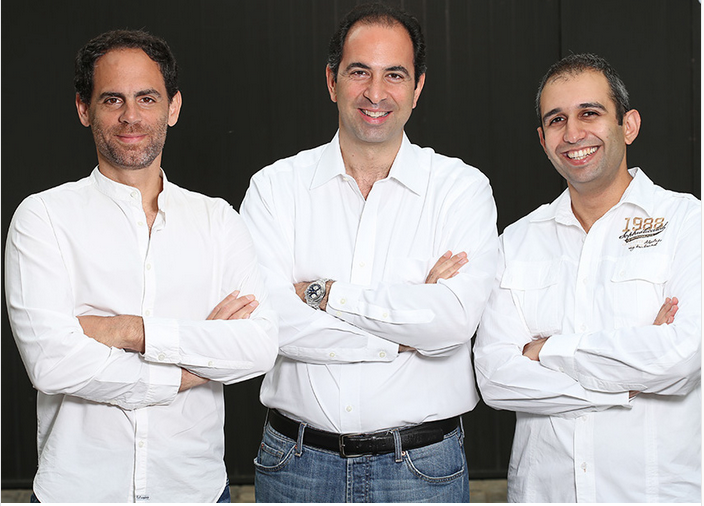
YO: Do you think these motivations are shared by the other entrepreneurs that are based here? Or they have other motivations as well?
BS: Some of them might not have the choice to go elsewhere, because it costs a lot of money to go elsewhere as well. And by the way this initiative here (the UK-Lebanon Tech Hub) is really the first of its kind in Lebanon because it also does not require or does not force the start-up founders to let go of equity, for the first stages here.
YO: So what are the conditions here? What is specific, or what makes your life easier when you’re based in Beirut Digital District, for example?
BS: Well, we have this setup here (Beirut Digital District), which is very very excellent;
we have teachers from Babson University, which is the top university in the world for entrepreneurship, and it was chosen by the British which makes it even more interesting as a choice, we all know that entrepreneurship is a tough choice for somebody who has been in business before and who suddenly embraces uncertainty, which was my case.
And we wanted again to remain in Lebanon, even if later on we might open some affiliate companies or physical presence in Europe, we wanted to be a Lebanese success story and eventually hire, continue hiring from Lebanese backgrounds if this is possible.
YO: Who are your partners? I’m interested in knowing how is the ecosystem, what ecosystem you’re working with. So who are the partners, types of companies or freelances or people you collaborate with? Are they all local, or do you work with international people, whatever…?
BS: As far as we are concerned, as Referd is concerned, we haven’t partnered yet with any companies here.
YO: Do you do everything by yourself?
BS: Yes, we did. We did some outsourcing jobs at the very beginning, but we’re looking for partnerships in terms of encryption, in protection of personal data. If again, we can’t find the right talent to hire in time. However this might change, and we will still remain completely autonomous if we find the right talent as I said.
YO: So more generally speaking then, if it’s not your case, do you see the other start-ups or entrepreneurs working more locally or establishing partnerships with other countries, and which countries?
BS: Yes, we have some start-ups here producing their products in Taiwan or China, some of them outsource their coding to Eastern Europe, to Ukraine... We again chose to do that in-house, even if it’s sometimes at a higher cost, because we have to relate the costs to hiring instead of outsourcing, but in the long term you win, because you have continuity. So yes, to answer your question, we have both cases.
YO: What would you say are the qualities of the Lebanese workforce in IT? Are there any specific skills that you find interesting when it comes to Lebanese people, that you’re noticing?
BS: Yes, definitely. Lebanese people are known to have really amazing ways of being very creative in whatever jobs they are embracing…
YO: But they aren’t really famous for digital or IT, so this is why I’m interested in your answer.
BS: Not yet, I and my partner and co-founder Costa, who’s the CTO of the company, we’re helping local universities guide their teachers and their faculty in choosing better ways of teaching developers and coders, and how to be more ready to be hired as soon as they’re finished. We ourselves are accepting some trainees from certain universities here, where we’re hosted.
YO: Who’s leading this digital, high-tech movement, in Lebanon? Is there one leader, are there many leaders, is it an organized movement or not, is there a strategy behind, can you elaborate a little bit on that?
BS: Sure. It’s been only 2 years that this tech sector has started to see some burgeoning. There are of course some success stories, like Shahiya, a Lebanese company which saw an exit lately, and another one for the media industry called Diwanee, these were 2 success stories.
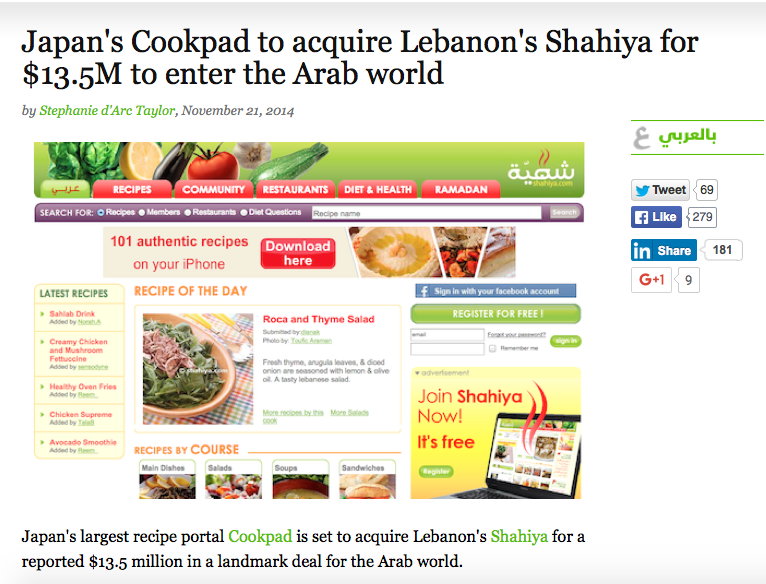
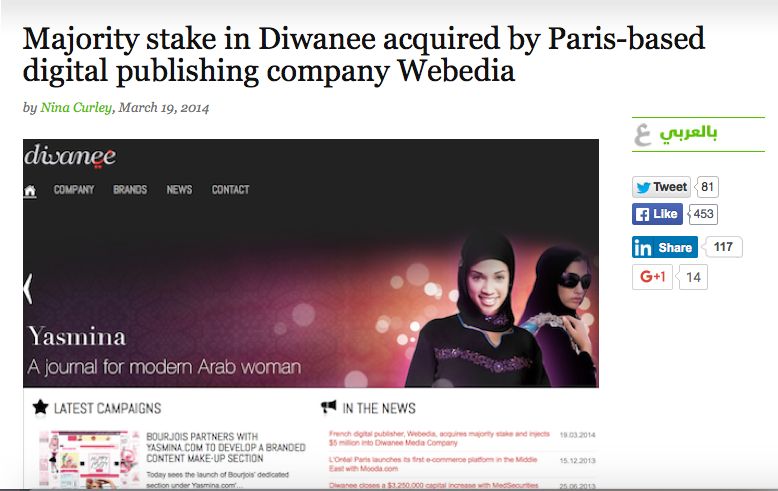
The whole community is really, has been ignited by the Central Bank of Lebanon with its famous 331 Circular that called for banks to allocate some money, a few hundred millions, to startups, because banks have been traditionally known, especially in Lebanon, to be very very risk-averse and not wanting to invest to startups.
So to go back to who are the players, I think it’s the BDL, Central Bank of Lebanon; organizations like Berytech, housing this building, plus many other buildings in the mountain near Beirut;
and certain organization that have come up, first there was Seeqnce, it was an incubator and then it closed down, it renamed itself and it’s now under the name of Startup Megaphone, it’s also doing a good job to disseminate the Lebanese startups and to make them known whether in New York City as happened last month or 2 months ago and next month in Singapore;
and you have the famous UK-Lebanon Tech Hub initiative done by the British Embassy, under the helm of the ex-ambassador Tom Fletcher, who did an amazing job to really come up with a person called Corm Reilly, who’s a UK advisor to the UK and to the Japanese governments in technology if I’m not mistaken,
and they have made this beautiful initiative and selected 45 companies out of 150 startups in Lebanon to really bring them up to speed with the right incubation and the proper follow-up, for later on to be selected hopefully among the 15 best companies in Lebanon to be invited for 6 months free of charge for accelerated incubation in London. So these are the main actors I’m thinking about as far as the startups’ tech scene is concerned.
YO: You mentioned the UK, but Lebanon has always been at the crossroads of many international influences, so I would say, the Arab world, the US, Europe, Africa maybe, because there are a lot of Lebanese people there… So how does this reflect in the development of this startup scene? You just mentioned the UK Embassy initiative, are there other countries or areas that are involved, and in which way?
BS: There are other organizations than those I just mentioned, I forgot, like for example, Wamda, and they have a lot of ties with the Arab world, with Jordan, with the Gulf states… There is the Bader initiative as well, with co-working 961, and there is the AltCity as well, in Beirut.
All these are important to mention because they are also part of the ecosystem of the companies who nurture startups here. Now as far as foreign countries, we haven’t really seen any direct involvement as big as the UK one, frankly speaking, I can think of certain big corporations like Hyundai who at AltCity the other day called for pitches,
so we’re seeing sometimes Korean companies or other companies come directly and encourage startups and give advices for their good ideas, but we haven’t really seen direct initiatives by countries. I also have to think of the Anima network, as well, which is in partnership with Berytech.
YO: What frustrates you most today, in the development of your business?
BS: The frustration, for me, as somebody who started his company, is really related to the choices I had to make at the very beginning that would really simplify the product. And I think it’s a frustrating but necessary choice, you can then later on add other features but you have to concentrate on the core value proposition, in our case, it’s finding the best mutual contact for you, which no other tool has ever offered today.
YO: I have a last question, which is: if you had a magic wand or if you could be granted 3 wishes, what would they be?
BS: 3 wishes… Reminds me of Aladdin! To answer your question, if I could be granted a wish, it would be really for me to be always convinced that this is the best thing I can do. And indeed it is, today I’m convinced that after 20 years of doing a lot of things, I think this is the best thing I have done. Choosing that this project is the project of my lifetime and I’m going to continue with it no matter what.
YO: So you’re not asking for a great Internet connection, for example?
BS: Well, yes, of course! We use sometimes our phones here to connect, in order to bypass the terrible wifi connections for the landlines!
YO: Thank you very much! Is there anything you want to add, that I haven’t asked you, or…?
BS: No, but I would like to say, at the end, as a closing, that no matter what you do in life, no matter what people tell you, if you put all your heart in it, and if you put all your passion, and you still have to fight, if you haven’t found your passion, stop, stop whatever you’re doing, take some time off if necessary even if you don’t really have the means, but I encourage people to do that, that’s what I have done. Stop, think deeply, what are your skills, what are things that you can, that you think you’re born for, what are the things that characterize you, what are the things that people love in you; if you don’t think that you love the things, that some of the things you’re made of are likeable, just ask around, ask people; what do you think is the best for me? What do you think I’m strong in? And then they’ll tell you!
YO: I think you’re ready to be a mentor, not only an entrepreneur, but a mentor for others!
BS: We’ll see that, but since you’ve told me that some of the people that are going to watch this are students I think education is wrong today, is badly designed, because it comes with the textbooks, and a brilliant education cannot come with the textbook only. It has to come with the experience shared by others to the students, telling them, really look in yourselves, look inside of you, and try to see the best that you can become, and why and how you want to change others and the way people think. If you think you have the magic formula for something, well go chase it and do it!
YO: Let’s hope you have the magic formula for Referd!
BS: We do believe that.
YO: Thanks a lot!

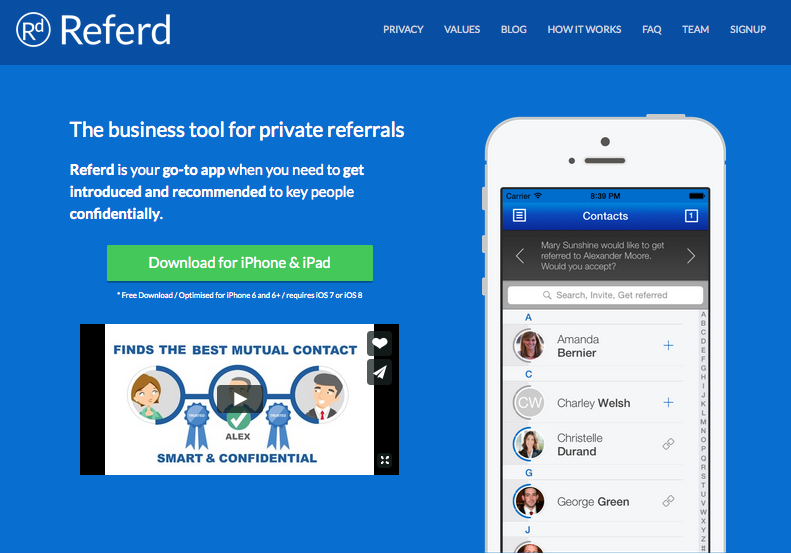
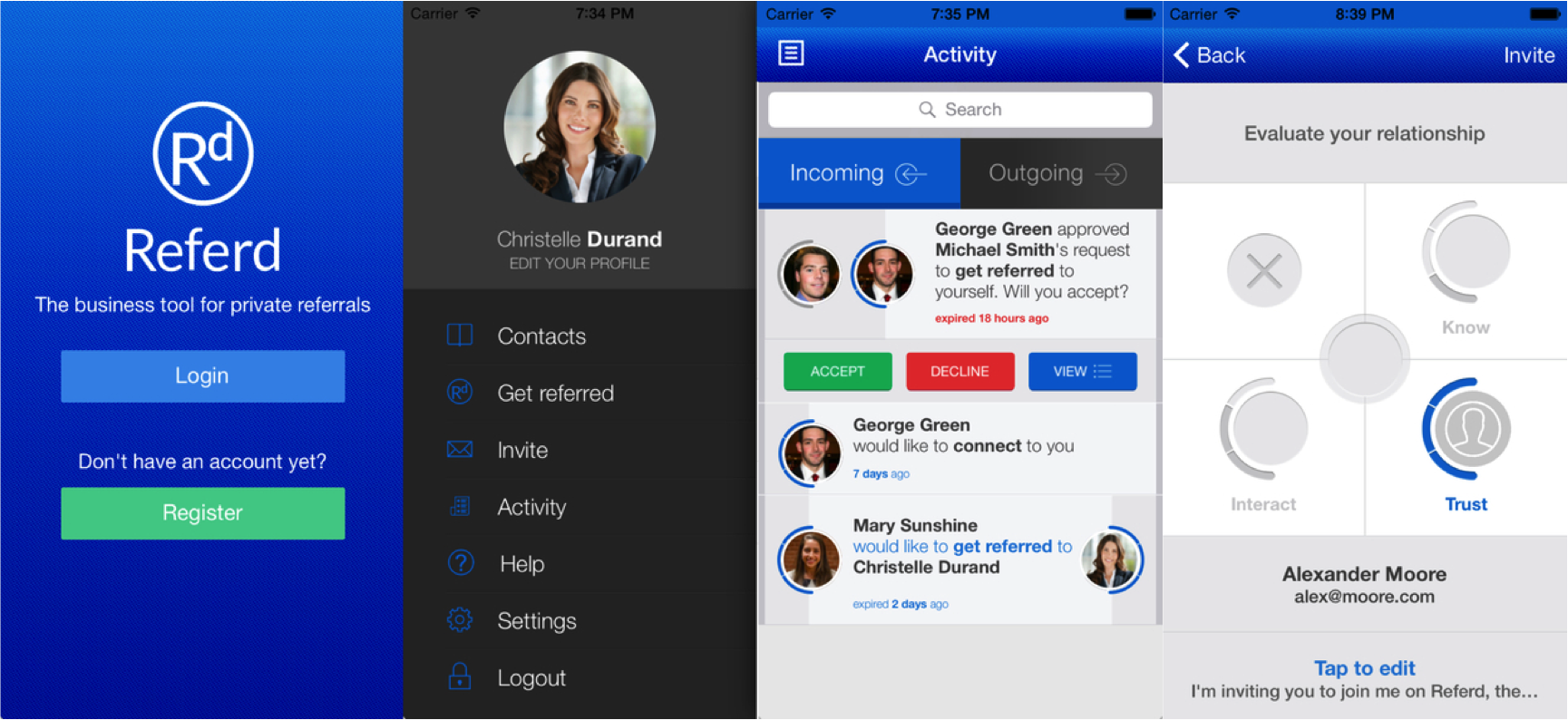
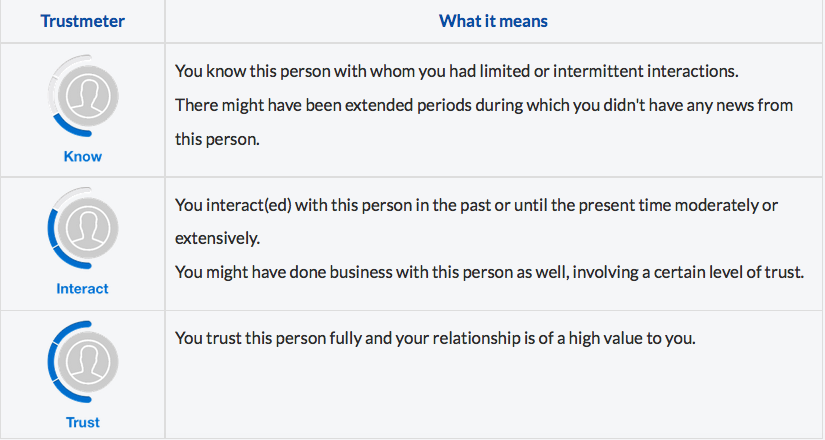
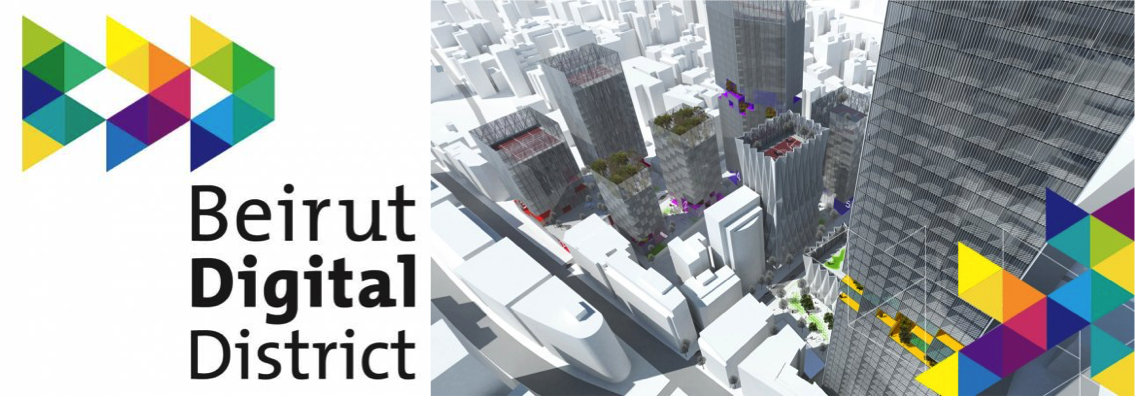
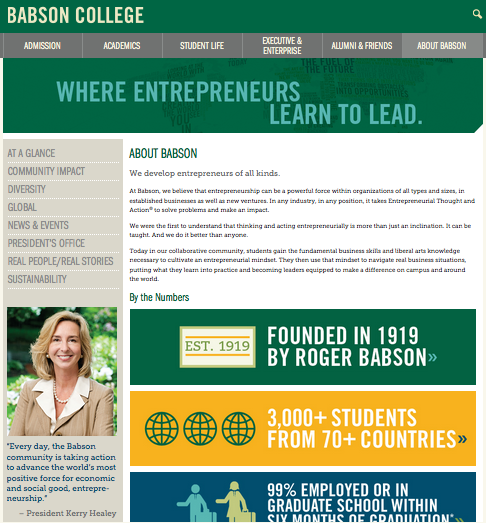

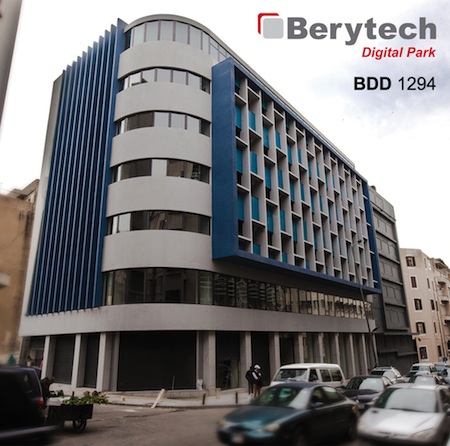
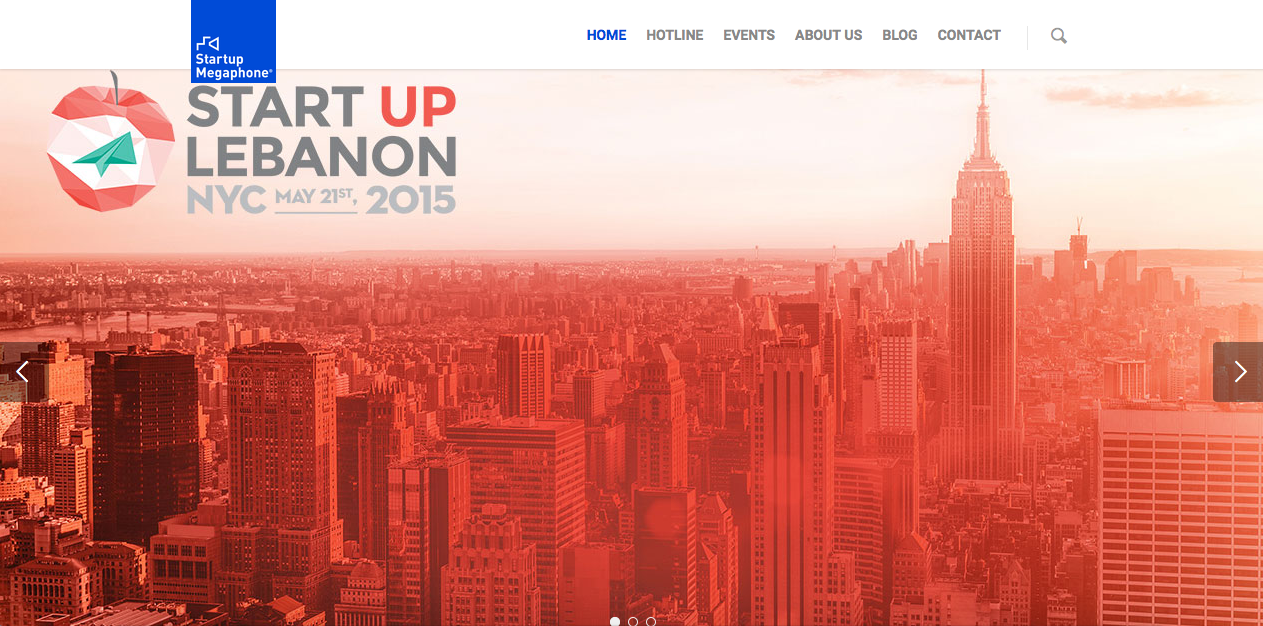
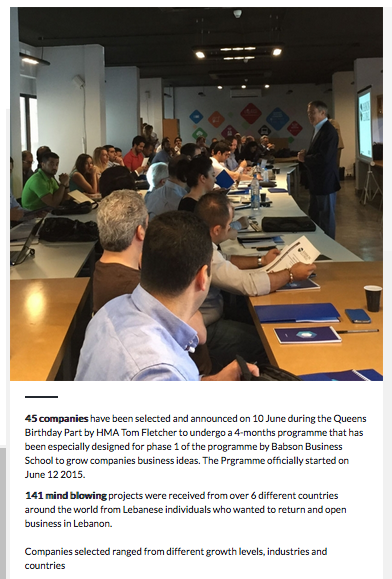
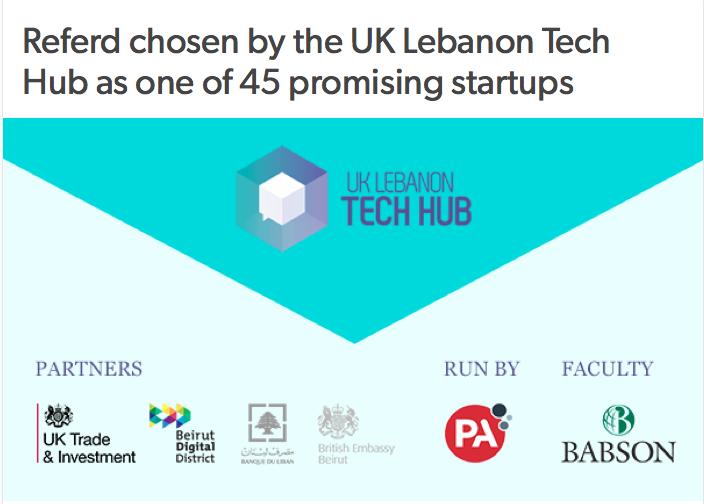
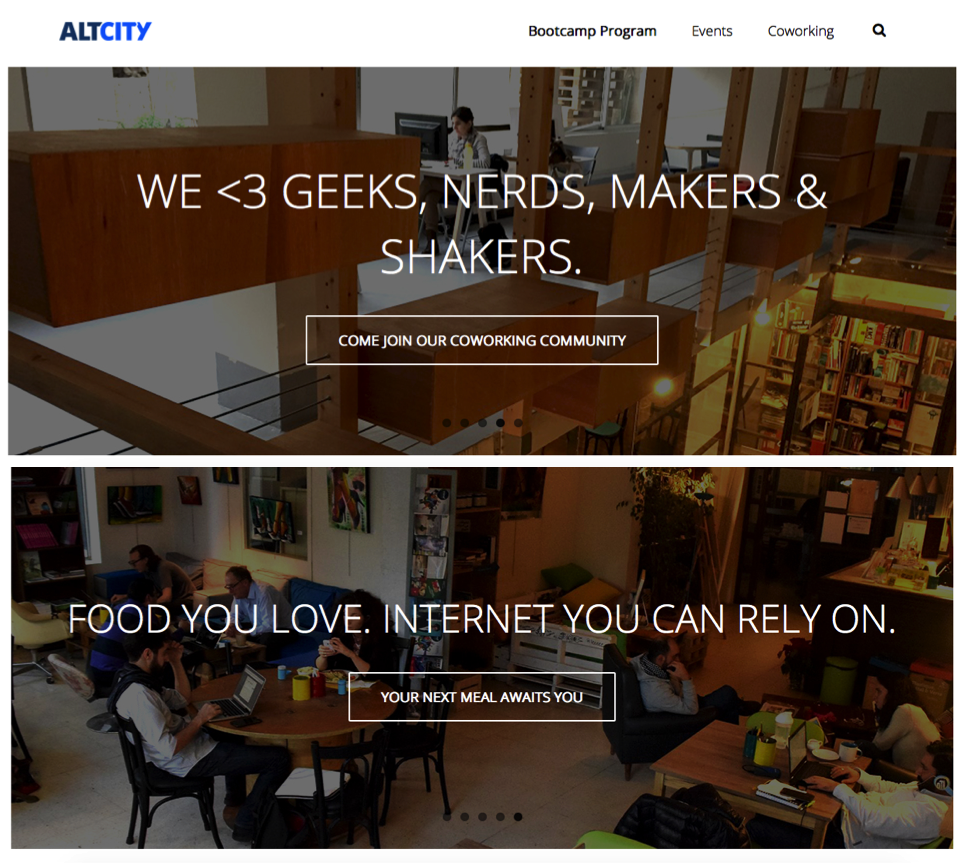
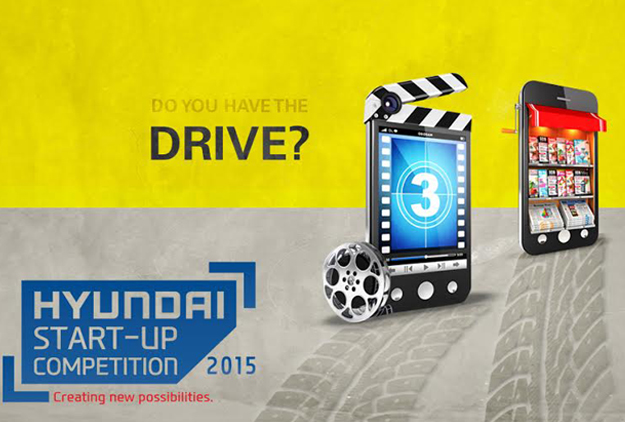
Merci encore pour cette interview Youmna!